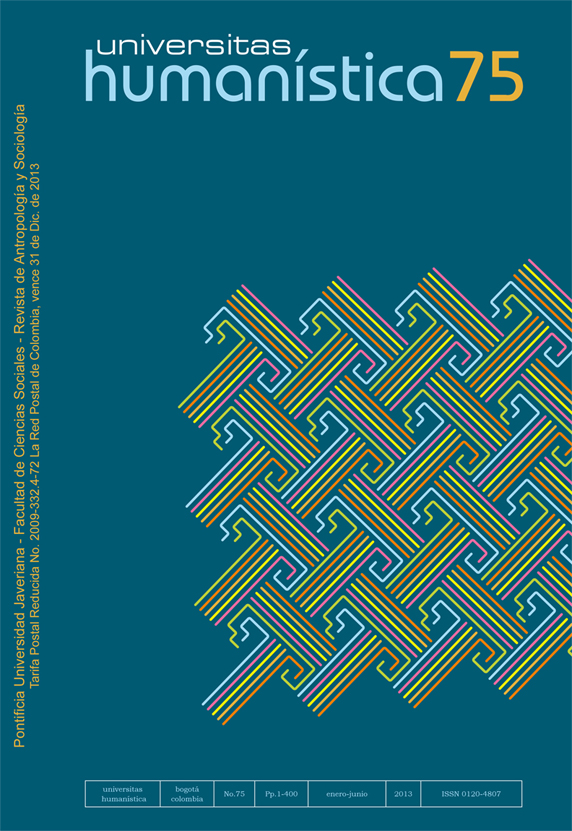Outline of an Anthropology of Muiscas from a southern perspective: parallels and transits
##plugins.themes.bootstrap3.article.details##
Abstract
This article aims to explore reflectively and critically the various ways in which symbolic powers operate on the anthropology of the Muisca Culture from the concerns raised, considering a southern perspective. This is intended to develop a parallel between the elements that compose the policy and epistemological critique of anthropology and those that allow us to understand the way in which the Muisca people try to occupy a central position today, having been relegated to the past and sentenced to a bumpy official ethnic recognition in the present. The proposal is to make the transition to an anthropology that is determined to work with collaborative methodologies. With this, the balance between the epistemological, ethical and political aspects could be achieved when making a “duplex” anthropology that integrates the official canons and knowledge managed by the studied communities.
Keywords
Antropología del sur, Muisca, “Duplejidad”, Campo, Etnografía, Metodologías colaborativasSouthern Anthropology, “Doubleness”, Field, Ethnography, Collaborative methodologiesAntropologia do sul, Muisca, “Duplicidade”, Campo, Etnografia, Metodologias colaborativas
References
How to Cite
Gómez Montañez, P. (2013). Outline of an Anthropology of Muiscas from a southern perspective: parallels and transits. Universitas Humanística, 75(75). Retrieved from https://revistas.javeriana.edu.co/index.php/univhumanistica/article/view/5966
Section
Controversia


